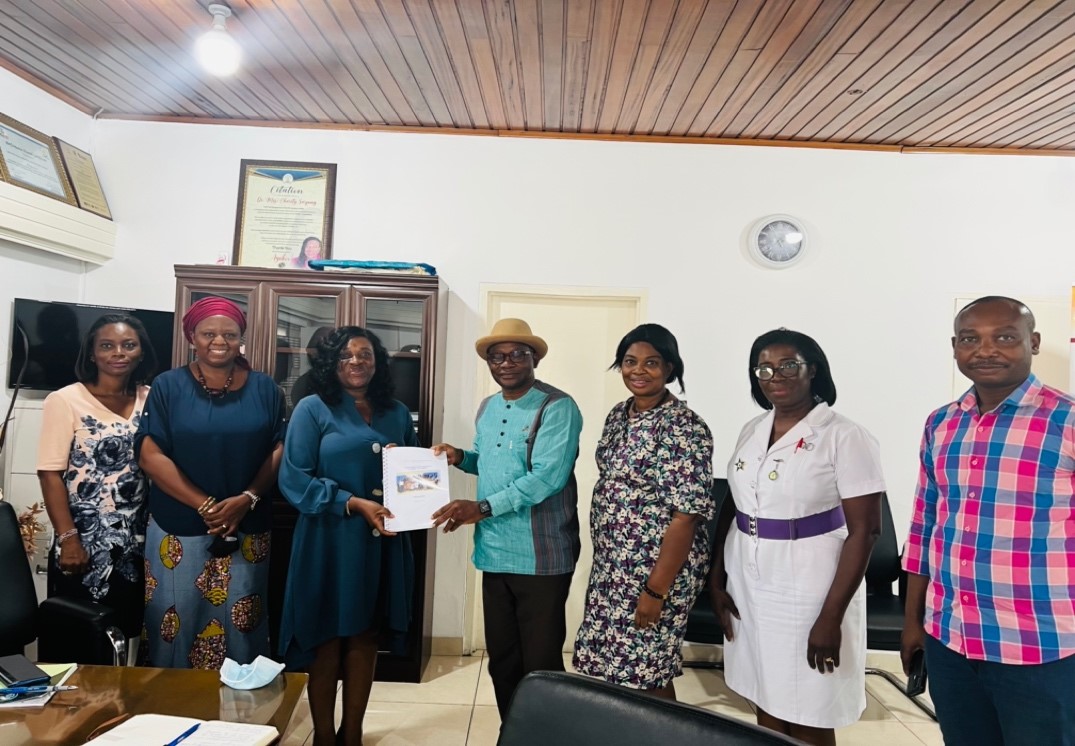
The lack of a robust specimen-referral system has resulted in long turnaround times for laboratory results sometimes delaying public health interventions that are needed for saving lives. Access to test results in lower-tier health institutions is critical to enhancing and prolonging patients’ lives. Under the US President’s Emergency Plan for AIDS Relief (PEPFAR), the US Centers for Disease Control and Prevention funded the creation of an SRS for HIV Viral Load and Early Infant Diagnosis in 2018, employing Ghana Postal Company Limited as the courier. The Global Fund funded the addition of tuberculosis to the SRS network in 2019. However, Ghana Health Service scrapped this approach in favour of a more decentralized regional-based structure.
In recent years, the Ghana Health Service has worked with a number of partners to create an effective and long-term national SRS for Ghana. Partners such as the Integrated Quality Laboratory Services (IQLS) have drafted sample referral guidelines for Ghana, which are now being reviewed by various stakeholders. Engagement with GHS and CDC partners, on the other hand, indicates the need for a regionally decentralized but integrated SRS.
To this end, the US Centers for Disease Control and Prevention (CDC) engaged CfHSS to create and implement an integrated sample referral system for the PHLs in Ghana as part of the Global Health Security Agenda (GHSA).
The pilot project was conducted in two regions of Ghana: The Greater Accra and the Northern region using the hubs and spokes model. GAR has 29 Districts, divided into Metropolitan, Municipal and District Assemblies. GAR has 3 tertiary teaching hospitals, and several secondary and primary health care facilities. The region has 1,272 health facilities comprising 707 CHPS facilities, 299 clinics, 101 maternity homes, 32 health centres, 22 polyclinics, and 111 hospitals. A total of 84 health facilities were selected to partake in the study from the region: 11 hubs (comprising of 8 mini-hubs and 3 main hubs) and 73 spokes. The 3 main hubs included the National Public Health and Reference Laboratory (NPHRL), and the Central Laboratory, both located at Korle-Bu Teaching Hospital (KBTH); and Noguchi Memorial Institute for Medical Research (NMIMR).
The Northern region has 16 districts. The region has 1 tertiary teaching hospital, but few secondary and primary health care facilities, compared to GAR. Health services in the region are provided by a network of health facilities owned by the public and private with a total number of 314 health facilities comprising 32 hospitals, 2 polyclinics, 102 clinics/health centres, 7 maternity homes and 171 CHPS compounds. A total of 21 health facilities were selected to partake in the study from the region: 4 hubs (comprising of 3 mini-hubs and 1 main hub) and 17 spokes.
The sample referral system program ran from January 2022 until November 2022. Active implementation at the healthcare facility level, on the other hand, took place from August to November 2022 in the Greater Accra Region and from July to October 2022 in the Northern Region.
Prior to the piloting phase, several consultation meetings and trainings were held in the various piloting sites, including a Biohazard management, fleet operations, defensive riding, and simulation exercise. To document information on sample referral, log books such as laboratory sample receipt log books, distance log books, sample transport vouchers, and results reporting log books were created. A monitoring indicator tool was created to evaluate the performance of the referral exercise. This tool was adapted and modified from the Integrated Quality Laboratory Services(IQLS) guideline paper on the ‘National integrated specimen referral and transport system’ being developed.
In order to evaluate the effectiveness of this pilot sample referral system before (pre) and after (post) implementation of the SRS, both qualitative and quantitative tools were employed. Qualitative tools involved broad stakeholder consultations and focus group discussions to discuss the transportation systems existing in the selected hubs, and its challenges and opportunities for improvement while quantitative data was used to compare pre- and post SRS implementation by analysing variables from log books using frequencies and contingency tables.
A total of 3483 samples were collected in the Greater Accra region with an average time for specimen to be received at the main referral/testing facilities being 4 days and an average turnaround time for results being 10 days. A total of 869 samples were in the Northern region during the pilot period with the average time for specimen to be received at the main referral facility ranging from 3 – 4 days and the average turn-around time for results being 14 days.
Challenges which hampered the smooth success of the pilot study were noted and various recommendations are being made to ensure a more effective system during a broader scale up exercise on sample referral.
A dissemination meeting was held with the core management team for Northern and Greater Accra regions on the 16th November 2022 and the 22nd November 2022 respectively to report back outcome of findings from the study.
The Centre for Health System Strengthening greatly appreciates the Centers for Disease Control and Prevention, CDC, Director General, Ghana Health Service, Director for Public Health, Ghana Health Service, Director of Health Service, Metropolitan, Municipal and District Health Directors Greater Accra and Northern Region and their management teams, Medical Superintendents of selected facilities, and their team, Head, National Public Health and Reference Laboratory, and her team, Head, Tamale Public Health Laboratory, and his team, Head, Central Laboratory, and team, Head, Noguchi Memorial Institute for Medical Research, and team, Local SRS coordinators, Laboratory personnel, Disease Surveillance Officers and Courier riders and drivers.

